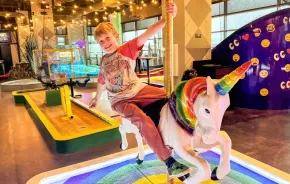Author
Mel Levine, M.D., spent most of his career helping students overcome
learning problems to do better in school. But in his latest book, he
accuses many of them of flunking a more important challenge - adult
life.
"Years of schooling and parenting have entirely missed that elusive target, work-life readiness," Levine writes in Ready or Not, Here Life Comes. Levine, a pediatrician and a professor, is also the author of the best-seller, A Mind at a Time.
In Ready or Not,
Levine gives parents a sobering preview of the years post-school. He
introduces us to former patients, and shows us step-by-step how they
seem to have lost their way in the transition between formal schooling
and holding a job.
But don't mistake this book's target
audience. Levine wants to reach parents of young children. He is hoping
to help influence how they raise their adolescents. For parents of
almost any age child, the book works as a perceptive lens through which
to see progress. With Levine's compassionate guidance, we view many
different reasons why a student can flounder.
One of these is what he calls being "trapped in your teens." Our present popular culture, including
advertising images, music and television shows, celebrates adolescence
and the elusive social status of being cool. Everyone seeks personal
pleasure at any cost. When Levine analyzes cool, he breaks it down into
parts that may seem innocent at first. To be cool is to be mildly
cynical and to try to keep up with trends that change quickly. But then
he shows us how the values of cool can undermine what a person needs to
show to keep a job. An employer wants stability and reliability. An
employer expects agreement with work norms, and not cynicism and
joking.
We meet a man named Buddy in the book,
who was a socially successful college student. He was well-liked and
showed leadership within his fraternity. On the job, he becomes his own
worst enemy. He tries to be cool, which means he can't appear to be
working overly hard, showing any initiative or seeming to be ambitious
or dressing for success, Levine explains.
Buddy eventually gets treated for
depression, which is partly fueled by his repeated failure in his
post-college jobs. Levine uses Buddy as an illustration of someone who
had great people skills, but never understood what else life required.
"Buddy should have been cured of his
naivete, for he was totally ignorant of what it takes to be a happy
adult when the party is over," Levine writes.
Levine gives readers many concrete
recommendations for how to help their children gain insight and inner
direction. For example, he provides a sample questionnaire to ask a
student yearly, beginning in middle school. Students' answers help them
see themes in their own interests and activities, and gain insight into
their own strengths and weaknesses. When this is done outside of an
academic context, it has a different spin. The question isn't - "Am I
good at math?" The question is - "Do I like puzzles?"
By helping young teens see patterns,
parents foster their child's self-knowledge. A student might choose an
after-school activity or job shadow related to a passion they have.
They might read biographies of people in careers they admire.
No one pretends that these early career
notions should be gospel, but Levine believes the process of imagining
your future and the process of analyzing your passions is in itself a
skill that requires practice to strengthen. Later on, every student is
going to need this grounding to make critical life choices.
Parents and educators are failing some
young people, by neglecting to teach the kind of communication,
patience, planning and accountability that life will require. Some call
this group of students the "echo boomers," children of parents born
during the baby boom. Levine told an interviewer that ironically, the
very careful parenting that boomers gave these children may leave them
vulnerable.
Parents have been "protecting them,
inflating their egos, massaging them and fighting their battles for
them." In Levine's mind, the protection leaves young adults fragile
when they meet the world.
Sally James is a freelance writer in Seattle and the parent of three teenagers, including a college sophomore.









